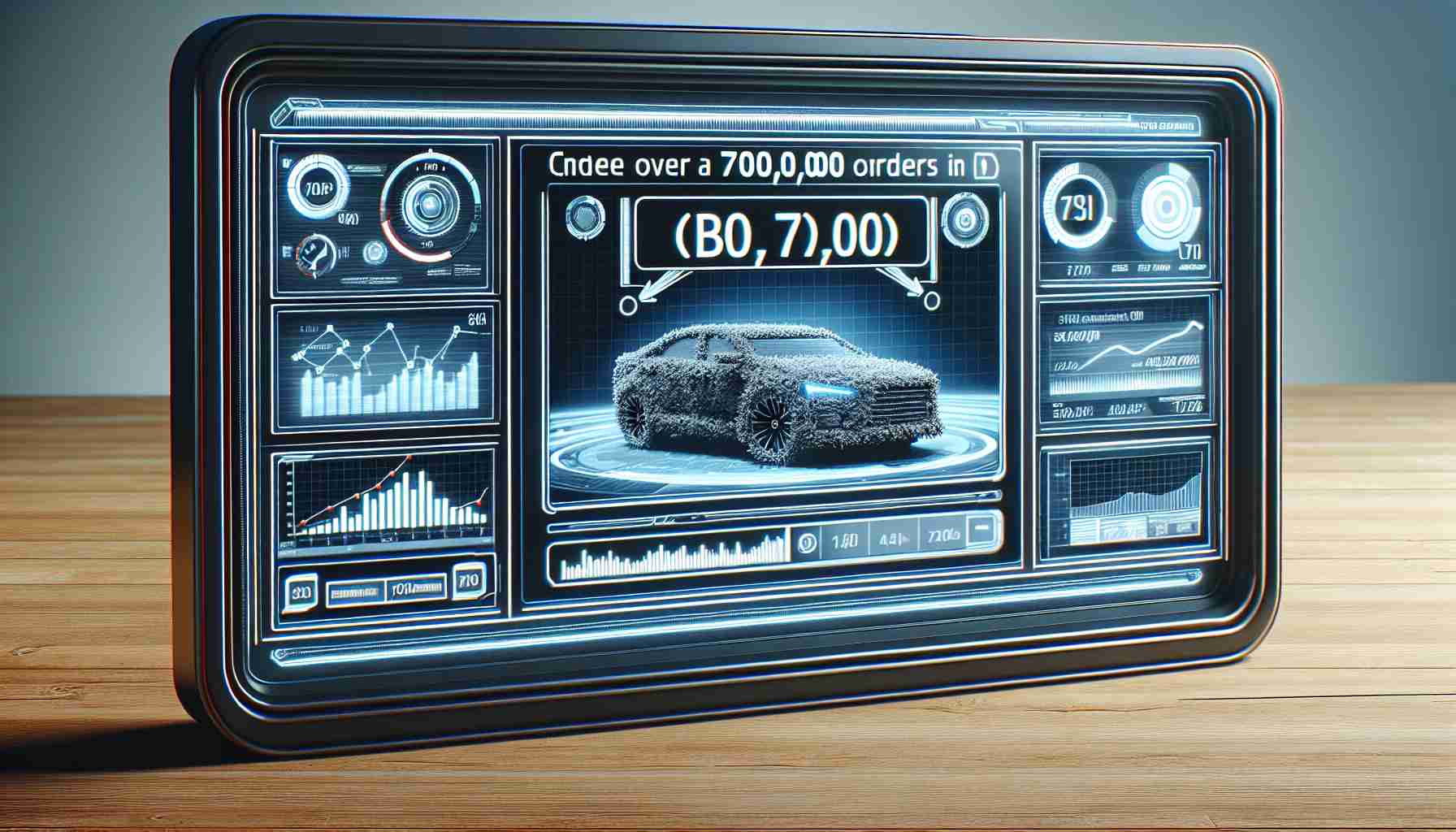High Demand for Xiaomi’s Automotive Adventure
Xiaomi has witnessed a soaring interest in its foray into the automotive industry, with more than 70,000 orders placed for its SU7 vehicle. The company’s founder, Lei Jun, communicated this significant milestone during a recent investor meeting, underscoring the brand’s strong start in the car market.
Robust Sales Projections for 2024
Looking forward, Xiaomi has set an ambitious target to deliver upwards of 100,000 SU7 cars by 2024. This goal was shared by Xiaomi President Lu Weibing, who revealed the company’s future aspirations on his social media platform. The information he relayed mirrored the optimistic outlook founder Lei Jun had presented earlier.
Enthusiasm Builds Around Xiaomi’s Latest Venture
As Xiaomi continues to expand beyond its well-established smartphone domain, the enthusiasm for its SU7 model indicates a readiness to embrace the technological expertise the company proposes to bring to the global automotive sector. The significant tally of advance orders suggests that Xiaomi may indeed become a formidable player in this new field.
Competition and Market Penetration
Xiaomi’s entry into the automotive market signifies a major step beyond its traditional consumer electronics stronghold. The SU7 model appears to be positioned in the electric vehicle (EV) segment, a market that is currently experiencing robust growth. Competing with established automotive brands, especially those in the EV niche like Tesla, and traditional car manufacturers who are also transitioning to electric, Xiaomi will need to leverage its reputation for innovation and value to penetrate the market effectively.
Challenges and Production Scalability
Key challenges Xiaomi might face include production scalability and reliability, regulatory approvals, and market-specific requirements. The EV market demands a significant investment in research and development to integrate cutting-edge automotive technologies, such as autonomous driving and battery efficiency. Furthermore, establishing a reliable network of suppliers and managing logistics for automotive production are complex tasks that differ from Xiaomi’s experience in consumer electronics.
Meeting Consumer Expectations
Another challenge might be meeting the high expectations for performance, safety, and quality that are associated with the automotive industry. In addition, overcoming the ‘range anxiety’ associated with EVs, which is the fear of running out of power before reaching the destination or a charging station, will be critical for broad consumer acceptance.
Regulatory Hurdles
A possible controversy or issue could stem from regulatory challenges in different countries, as EVs must meet stringent safety and environmental standards. It’s important to consider that Xiaomi will need to navigate an array of regulations, especially if it plans to sell the SU7 internationally.
Advantages and Disadvantages
The main advantages of Xiaomi’s foray into the automotive industry lie in their existing brand loyalty, technological prowess, and manufacturing capabilities. The brand has a reputation for producing high-quality products at competitive prices, which could translate well into the automotive space.
However, disadvantages could include Xiaomi’s inexperience with automotive manufacturing and a saturated market with well-established players. They will also need to build out service networks for maintenance and repairs to support the lifetime of their cars—something existing car manufacturers already have.
For those interested in learning more about Xiaomi and their ventures, you may visit their official website using this link.
Please note that while the above information is based on the potential context of Xiaomi entering the automotive market, it does not come from the stated article and is instead built upon general knowledge about the industry and Xiaomi’s business practices up to the knowledge cutoff date.
The source of the article is from the blog elblog.pl
